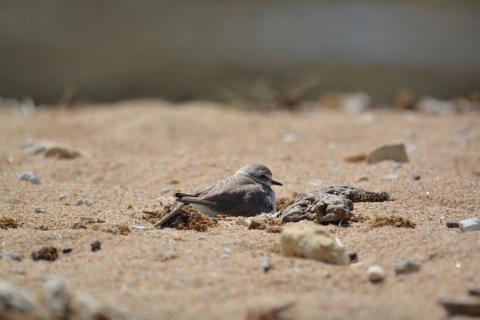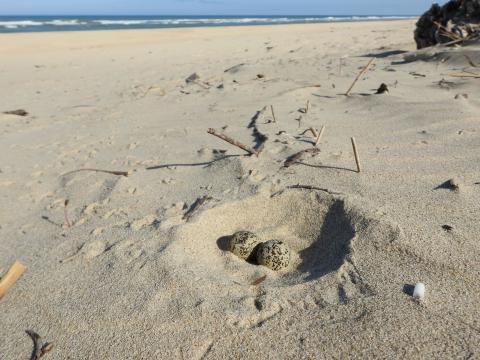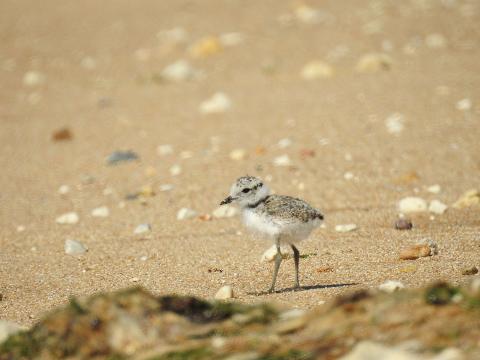Protecting the Kentish Plover
On the beaches of Charente-Maritime, a discreet bird races against time every spring to make it chicks hatch hidden from view... and the footsteps of walkers. The Kentish Plover, a small coastal wader weighing barely 45g, lays its eggs directly on the sand. The mimicry of the eggs and chicks with their environment makes them difficult to spot, and therefore particularly vulnerable to trampling and disturbance.

Female Kentish Plover nesting © Jennifer Fabre 
Nest of Kentish Plover © Elisa Daviaud
To help preserve this species listed as Vulnerable on the Red List of Threatened Birds in mainland France, Palmyre Conservation has launched a new partnership with the LPO Poitou-Charentes who has been commissioned by the Gironde Estuary and Pertuis Sea Marine Natural Park to coordinate the monitoring of the reproduction and protection of this iconic wader along our coastline, from the Médoc to the Vendée.
Charente-Maritime is home to approximately 80 breeding pairs, mainly located on the Arvert Peninsula, a stone's throw from the zoo, and on the island of Oléron. This is a significant number considering that mainland France is home to approximately 1,500 pairs, including more than 200 (meaning more than 10%!) within the marine park alone.
The Kentish Plover's breeding season, which runs from April to July, coincides with increased tourist traffic on the beaches. This poses numerous threats: involuntary trampling of eggs, disturbance or predation by unleashed dogs, passing motorized vehicles, mechanical cleaning of the upper beach, etc. These disturbances can lead to the parents abandoning their nests or even the death of newly hatched chicks.

In response to these challenges, the LPO is implementing several initiatives: installing small enclosures to protect the most exposed nests, setting up information signs, raising public awareness, training volunteers to monitor the population during the breeding season, and conducting environmental education activities.
You can also help preserving this fragile species by adopting simple steps during your beach walks: stay on marked trails, avoid the upper end of the beach and dunes, keep your dog on a leash, and move away if a bird appears injured or makes repeated cries—it's likely a parent trying to lure you away from its nest.
By supporting the LPO's efforts, Palmyre Conservation reaffirms its commitment to protecting local biodiversity. This new partnership strengthens a collective effort essential to safeguarding iconic heritage species of our coastlines.